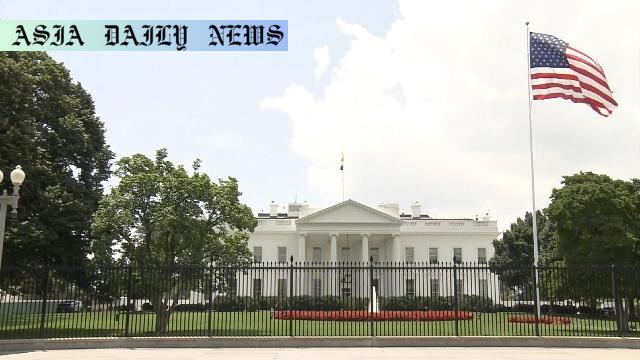Tariff Exemption: Trump ends 800-dollar duty-free allowance for low-value imports, tackling illicit trade and market dumping.
- President Trump ends the tariff exemption for goods valued under $800.
- The move targets 1.3 billion annual low-value shipments entering the US.
- Aims to prevent market dumping and curb illicit substance inflows.

President Trump Ends Tariff Exemption for Low-Value Goods
The administration of US President Donald Trump has announced a significant policy change by ending the longstanding tariff exemption for low-value imported goods. Effective from August 29, the exemption, commonly known as the “de minimis” rule, will no longer apply. This exemption previously shielded imports valued at $800 or less from customs duties, allowing such goods to enter the United States duty-free. The move has implications for businesses, consumers, and international trade.
Increasing Low-Value Shipments and Their Economic Impact
The decision to revoke the tariff exemption stems from a dramatic rise in small, individual shipments entering the US market. According to US Customs and Border Protection (CBP), over 1.3 billion packages benefitted from the exemption in 2024, marking a near tenfold increase over the past decade. The administration argues that this surge has allowed companies to exploit the system by flooding the market with inexpensive goods, often sold below fair market value. Further, concerns over such imports serving as channels for drug smuggling have also been raised.
A Step Towards Protecting US Markets and Security
The change is being cited as a necessary measure for economic protection and national security. By eliminating the tariff exemption, the administration aims to establish a level playing field for domestic manufacturers while reducing financial incentives for companies that engage in “market dumping.” Such dumping practices primarily involve undercutting market prices, which can negatively affect US businesses and the broader economy.
Special Focus on China and its Market Practices
The termination of the tariff exemption follows similar actions earlier this year specifically targeting imports from China and Hong Kong. In May, duty-free allowances for small packages from these regions were repealed. Over the past decade, online shopping businesses in China have experienced exponential growth, contributing heavily to the increase in duty-free shipments. However, with the removal of the exemption, these businesses are now raising their prices for US consumers.
Implications for Consumers and Global Trade
While the administration’s focus is on curbing misuse of the system and enhancing domestic economic resilience, the move could also result in higher costs for US consumers. With fewer goods entering the market without tariffs, online shoppers, particularly those purchasing from international e-commerce platforms, may experience price increases. Additionally, global trade relations could be strained as countries affected by this policy reevaluate their trade dynamics with the US.
Challenges and Criticism Surrounding the Change
While proponents of the policy argue that it is essential for protecting US industries and reducing illegal trade, critics caution against unintended consequences. Small businesses and consumers who rely on low-cost imports might face financial pressure, and there are concerns about added administrative burdens for customs authorities. Furthermore, abrupt changes to longstanding trade policies could potentially harm diplomatic relationships with other economic partners.
Conclusion: Balancing Trade, Security, and Economic Priorities
The repeal of the de minimis exemption highlights a broader trend toward stricter trade policies under the Trump administration. While the change is intended to bolster the US economy and address security risks, it also raises important questions about its impact on consumers, businesses, and global trade. The effectiveness of the policy will become clearer in the months ahead, as stakeholders adapt to the new customs regime.



Commentary
Understanding the Rationale Behind the New Tariff Policy
The decision to end the tariff exemption for low-value goods has sparked wide-ranging discussions across economic and political spheres. On the one hand, this policy underscores President Trump’s broader agenda of economic nationalism, aiming to protect domestic industries from unfair competition and create a level playing field. The exponential increase in low-value shipments over the last decade points to a need for reevaluation, as the sheer volume of goods entering the US duty-free may indeed put local manufacturers at a disadvantage.
Implications for Consumers and Businesses
However, the implications of this policy extend far beyond economic theory. For consumers, particularly those accustomed to ordering inexpensive goods online, the removal of the de minimis exemption could mean significant price hikes. Small businesses that rely on imported goods as part of their supply chain might also face increased costs, possibly leading to reduced profitability or higher prices for end consumers. This raises questions about how the policy strikes a balance between long-term economic goals and immediate consumer impact.
Evaluating Security and Trade Arguments
From a security perspective, the administration’s argument about stemming the influx of illicit drugs is noteworthy. It is true that large volumes of small, unchecked shipments could serve as conduits for illegal activities. However, addressing these concerns through blanket tariffs might not be the most efficient solution. Moreover, the broader implications for international trade cannot be overlooked. Countries with significant stakes in exporting low-value goods to the US may view this move as hostile, potentially leading to retaliatory measures or strained relations.
Looking Ahead: A Complex Trade Policy Landscape
Ultimately, the repeal of the tariff exemption represents a significant shift in US trade policy with implications that will unfold over time. While the administration’s goals are commendable, success will depend on how well the changes are implemented and whether they achieve their intended outcomes without disproportionately impacting US consumers and businesses. In the complex dynamics of global trade, such policies must carefully weigh the benefits against potential unintended consequences.